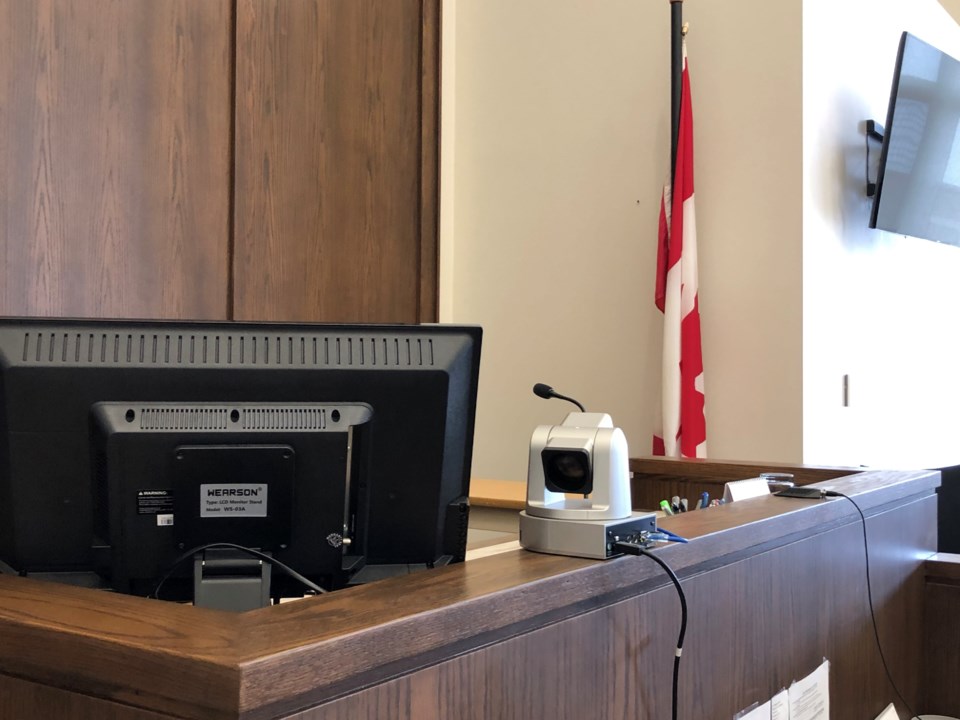MOOSEJAWTODAY.COM — Forcing police to annually test their knowledge of properly searching prisoners and updating detention cell intake forms to include more information are two of 10 ideas that a coroner’s inquest jury has made.
The two-men, four-women jury presented their recommendations at Court of King’s Bench on April 18 on the final day of the coroner’s inquest into the suicide of Assiniboia’s Jeremy Sabourin in Moose Jaw Police Service (MJPS) cells on Oct. 7, 2021.
The 10 recommendations that the jury made — in hopes of avoiding similar deaths in the future — include:
- RCMP and the MJPS shall require all new members to become familiar with applicable policies, and all members shall review applicable policies annually and document their completion
- RCMP and MJPS implement annual testing and qualification of their members on approved physical and metal detection wand-use search techniques, with testing to be conducted by an external police agency
- RCMP should have a minimum of two wands available at each detachment to search prisoners
- RCMP should modify an intake form known as C-13 so it provides more space for officers to write information and clearly indicate which fields are mandatory for offices to fill in before they transfer prisoners to another agency
- RCMP and MJPS should provide their members with annual mandatory mental health and suicide crisis training
- MJPS should ensure its members complete all information on applicable forms when prisoners come into custody
- MJPS should modify its custody intake form to include a space for when prisoners are non-responsive to questions
- RCMP shall review its prisoner search procedures and a technique called the “disadvantage position” to determine whether they are effective and align with the best practices of policing
- RCMP and MJPS shall formalize a policy compliance audit process with audits to occur at least once annually
- RCMP and MJPS should consider that a breach of policy involving the search of a prisoner is a serious matter and engage in disciplinary processes where appropriate
The jury determined that Sabourin died on Oct. 7, 2021, at 9:25 a.m. in MJPS cells after dying by suicide from a self-inflicted gunshot wound to the head.
Based on the evidence, he used a small, concealed pistol — the holster was likely clipped to the inside of his underwear — that two Assiniboia RCMP officers failed to find while searching him, while Moose Jaw police neglected to search him at all when their rural counterparts brought him in on Oct. 6.
The family told the media that the week-long inquiry was difficult, but they hoped that its outcome prevented something similar from happening to anyone else.
Blaine Beaven, the inquest coroner, also offered a recommendation. He noted that it’s not something coroners often do, but the province made changes to legislation several years ago to allow it.
“I do want to comment that the recommendations made by the jury are very thoughtful (and) very thorough,” he said. “I believe they meet all the requirements in law and the coroner’s act. And I’m very impressed by your obvious attention to detail in this case.”
Beaven’s recommendation — supplemental and not infringing on the jury’s suggestions — was that all Saskatchewan police services should review and, where necessary, modify the wording of the jury’s recommendations so the recommendations apply to their police service.
Provincial police services take prisoners into custody daily, and this incident could have happened to any of them — and could still happen to any of them, Beaven continued. Therefore, these recommendations are equally relevant to them too.
The inquest coroner commended the jury members for their attention and dedication while he lauded the seriousness with which they took their duties based on the questions they asked. He hoped that the inquest produced changes and adherence to the recommendations and that this never happened again.




